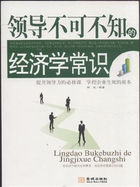"Is it so small a thing To have enjoyed the sun, To have lived light in spring?"
It is eight o'clock of a sunny spring morning. I have been on the road for almost three hours. At five I left the town of Holt, before six I had crossed the railroad at a place called Martin's Landing, and an hour ago, at seven, I could see in the distance the spires of Nortontown. And all the morning as I came tramping along the fine country roads with my pack-strap resting warmly on my shoulder, and a song in my throat--just nameless words to a nameless tune--and all the birds singing, and all the brooks bright under their little bridges, I knew that I must soon step aside and put down, if I could, some faint impression of the feeling of this time and place. I cannot hope to convey any adequate sense of it all--of the feeling of lightness, strength, clearness, I have as I sit here under this maple tree--but I am going to write as long as ever I am happy at it, and when I am no longer happy at it, why, here at my very hand lies the pleasant country road, stretching away toward newer hills and richer scenes.
Until to-day I have not really been quite clear in my own mind as to the step I have taken. My sober friend, have you ever tried to do anything that the world at large considers not quite sensible, not quite sane? Try it! It is easier to commit a thundering crime. A friend of mine delights in walking to town bareheaded, and I fully believe the neighbourhood is more disquieted thereby than it would be if my friend came home drunken or failed to pay his debts.
Here I am then, a farmer, forty miles from home in planting time, taking his ease under a maple tree and writing in a little book held on his knee! Is not that the height of absurdity? Of all my friends the Scotch Preacher was the only one who seemed to understand why it was that I must go away for a time. Oh, I am a sinful and revolutionary person!
When I left home last week, if you could have had a truthful picture of me--for is there not a photography so delicate that it will catch the dim thought-shapes which attend upon our lives?--if you could have had such a truthful picture of me, you would have seen, besides a farmer named Grayson with a gray bag hanging from his shoulder, a strange company following close upon his steps. Among this crew you would have made out easily:
Two fine cows.
Four Berkshire pigs.
One team of gray horses, the old mare a little lame in her right foreleg.
About fifty hens, four cockerels, and a number of ducks and geese.
More than this--I shall offer no explanation in these writings of any miracles that may appear--you would have seen an entirely respectable old farmhouse bumping and hobbling along as best it might in the rear. And in the doorway, Harriet Grayson, in her immaculate white apron, with the veritable look in her eyes which she wears when I am not comporting myself with quite the proper decorum.
Oh, they would not let me go! How they all followed clamoring after me. My thoughts coursed backward faster than ever I could run away. If you could have heard that motley crew of the barnyard as I did-- the hens all cackling, the ducks quacking, the pigs grunting, and the old mare neighing and stamping, you would have thought it a miracle that I escaped at all.
So often we think in a superior and lordly manner of our possessions, when, as a matter of fact, we do not really possess them, they possess us. For ten years I have been the humble servant, attending upon the commonest daily needs of sundry hens, ducks, geese, pigs, bees, and of a fussy and exacting old gray mare. And the habit of servitude, I find, has worn deep scars upon me. I am almost like the life prisoner who finds the door of his cell suddenly open, and fears to escape. Why, I had almost become ALL farmer.
On the first morning after I left home I awoke as usual about five o'clock with the irresistible feeling that I must do the milking. So well disciplined had I become in my servitude that I instinctively thrust my leg out of bed--but pulled it quickly back in again, turned over, drew a long, luxurious breath, and said to myself:
"Avaunt cows! Get thee behind me, swine! Shoo, hens!"
Instantly the clatter of mastery to which I had responded so quickly for so many years grew perceptibly fainter, the hens cackled less domineeringly, the pigs squealed less insistently, and as for the strutting cockerel, that lordly and despotic bird stopped fairly in the middle of a crow, and his voice gurgled away in a spasm of astonishment. As for the old farmhouse, it grew so dim I could scarcely see it at all! Having thus published abroad my Declaration of Independence, nailed my defiance to the door, and otherwise established myself as a free person, I turned over in my bed and took another delicious nap.
Do you know, friend, we can be free of many things that dominate our lives by merely crying out a rebellious "Avaunt!"
But in spite of this bold beginning, I assure you it required several days to break the habit of cows and hens. The second morning I awakened again at five o'clock, but my leg did not make for the side of the bed; the third morning I was only partially awakened, and on the fourth morning I slept like a millionaire (or at least I slept as a millionaire is supposed to sleep!) until the clock struck seven.













